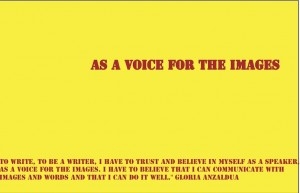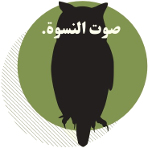
Here again. Another trip out gets me back to this coast. But the feeling doesn’t seem to want to fly away. Coming back it seems like this “thing” is irremediable; like a current that continuously pulls you away from the coast.
I see friends I miss to eagerly share stories of what I saw, but quickly then a weird sense of dispossession and disconnection seethes seeps in..; like some dysfunctional alarm clock snooze, it is unshakable, confusing and not easily tamed.
Suddenly, I realize where it comes from suddenly.
I just dislike my city. Managing to live at this moment with that feeling isn’t the problem, it’s rather realizing that, at a particular point, the feeling of no return happens: The resounding break, just like that sudden awakening when you happen to outgrow love.
I avoid unpacking my suitcase, to keep my memories awake, still on the run. I avoid walking on neighboring streets lest the fresh images still colored in my head get quickly replaced. It’s too easy to keep that feeling lingering.
Like a foreigner uprooted somewhere with the too-occasional sense of un-belonging, I settle with that mixed feeling. I play with it, intentionally putting a distance between this place and me, saying, “No, I have not and will not miss you,” trying to objectively see it with the sharpness of examination lights.
It’s simple, you might think. The place is too chaotic, too maddening, unorganized and full of sordid politics to lament about and push away even the most resilient ones of us.
The cars drive me crazy – why do we have so many? The lack of light confuses me, the sky seems so far in the jungle of cranes and glass towers eating up the space. In an invasion of metal and concrete, the city seems to croak instead of singing something. A bossa nova, perhaps? I’d like a park to read somewhere or a public space with a bench to sit on for a lighthearted conversation, but it seems that valet-ing your car or walking in a mall with brands you consume in Shanghai and Dubai is becoming more standard.
I guess that pubs mushroom so easily along these tortuous streets since as they seem to be the only place where people can sit and gather. There goes a drink or two for forgetfulness, a song or two and we erase the days that reveal the city.
Even the sea seems to have been taken away, new violations of public property happen every day and I prefer not to walk next to it before sunset to avoid feeding the sense of dispossession. A lovely old house is torn down; it’s not the greedy speculators that tear and eat away a city’s fabric, it is the luring dance of neglectful, corrupt politicians and citizens driven powerless.
More of your memory is lost, and you get that indescribable feeling of loss when you wonder if Beirut was better during the war than after two decades of post-war reconstruction. Or is that deconstruction, getting always closer to destruction.
It’s simple, you can think of a million ways to disregard the place. Hate the harassment and the ill-regard that people have for each other when driving, for example. I’ve come to the conclusion that we are so divided we somaticize it in our daily quests – it’s no wonder there are so many accidents – with no war swords drawn, it’s the only way we can destroy one another, latently.
It’s simple, you might think that in a place with such disregard for civil rights, where more than 60% of the population is too hopeless to vote, where women are treated as second-rate citizens, where a Mufti of the republic thinks it’s in your best interest to be abused by your husband, where home-bound migrant workers equal luxury for some… It’s simple. You can think of a million ways this divided little place is simply beyond repair.
And then you remember the little instances…
The little pockets of indescribable things called life that grow against all odds like wild flowers…
You’re walking and there’s an elderly couple sitting on their balcony, they wave at you, the curious walker, then the son comes out in his sleeveless underwear shirt with his shaving cream all over his face. “Come up!” they say.
You lose your car keys in the middle of the crowded corniche, and a young soldier comes up to you when a kid finds them and hands them to him.
A taxi driver insists on handing you his wallet’s possessions because you forgot your money at home.
Beirut, as ravaged by bullet wounds as it is by avid corruption, so abused it cannot offer any semblance of civility, abandoned as well by those who stayed during the war… Mix with it an absence of a state of law and you have an animal of a city trying to live by itself.
It lives on its own, sprawling ungoverned and wild. It seems rushed, choked by those too eager to dispose of it as they please. Holding that organic magic, it’s palpable, you can almost sense its pulse. Breath hurried, gasping for air, caught between the constant contrasts of being cursed and fighting it off. You feel it in the crazy car horns of service drivers, the frenetic pace at which people seem to interact with each other, their revelries, the familiar friendliness of people you meet, that sense of instant closeness, the mix of languages as if one were never enough to quench, to connect. Something so ultimately instinctual, it scares you how much you tolerance it.
You see it struggling, and the city seems to you irresistibly beautiful, and you understand that what draws you to it is that sensuality. That pulse that does not go silent.
The city is in you. And all you can think of is how to come back to it. Be with it. Be in it.
Like phantom pains from lost limbs, you readily await any sign that the city might still retain any hope. Suddenly the slightest news of anything remotely positive sends you flying: they just rearranged the rates of telephone services, what an achievement! They are thinking of passing an anti-smoking law – how progressive!
And so just like lovers awake, too aware of love’s trials, united by its frailty, the city seems as conflicted. But you stay here waiting for little miracles to happen, that keep you hanging on for more.
Who are the biggest losers in this game of impossible fantasies? The ones who stay driven half foolish by frustration, or those who leave and freeze off the yearning in places cold enough to not remember? Is an immigrant the biggest lover, the one this place keeps asking about, the one who keeps trying to fight off longing? Realizing it’s not rationally possible to stay, when asked, you just say the city is like a lover.
For a minute more you’d like to hold it again and say, “Tomorrow might be better, are we not just okay?”
And you end up asking yourself if we are always destined to a constant tango of goodbyes.
Publisher:
Section:
Category:






